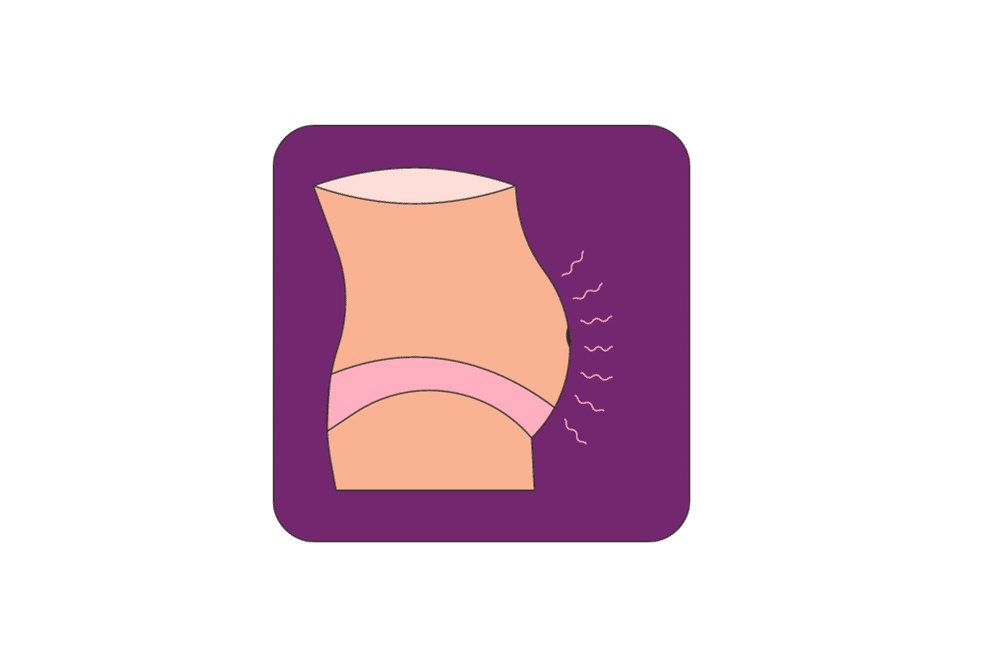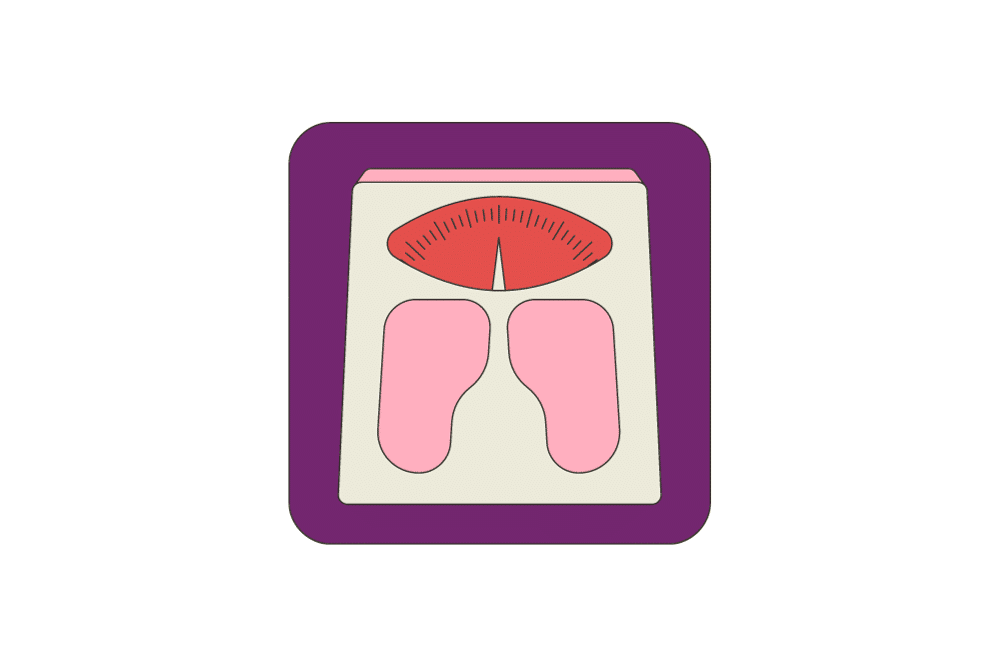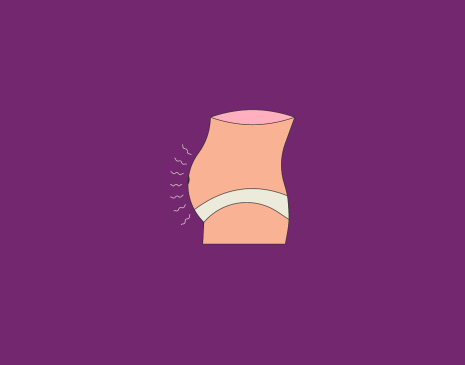“Why does weight fluctuate so much from one day to the next?” is a common question that plagues many women striving for weight management and overall health. Body weight is subject to many factors, and understanding the reasons behind these daily fluctuations can provide valuable insights into your wellness journey. In this article, we delve into the science behind daily weight changes, helping you understand what’s causing your weight to fluctuate and how it relates to your health and lifestyle.
The Science Behind Daily Weight Fluctuations
Daily weight fluctuations may seem perplexing but result from various biological and lifestyle factors.
These fluctuations are primarily driven by the body’s intricate mechanisms, such as water retention, the digestion process, hormonal fluctuations, and the impact of physical activity. These factors all cause weight gain and contribute to the number on the scale. However, these fluctuations are usually temporary and don’t represent substantial or lasting changes in body composition. Understanding these factors can help you interpret daily weight changes in a more informed and less anxious manner as you navigate your health and wellness journey.
Water Weight: The Hidden Culprit
Water weight is like the extra baggage our bodies carry because of the fluids we consume. Think of your body as a sponge soaking up water. When you drink water or anything liquid, your body holds onto it. It’s stored in your cells, tissues, and organs, making you temporarily heavier.
This extra weight is due to the water you’ve taken in. To give you an idea, one litre of water weighs about one kilogram, so it’s pretty heavy. When you step on the scale after drinking every day, you might see the numbers increase because of this stored water, even though it’s not permanent.
Your body is smart; it doesn’t keep this water forever. Over time, it naturally lets it go. It’s like your body’s way of balancing things out. You lose this stored water when you pee, sweat, and even breathe. This gradual release reduces your weight, usually to what you consider your “normal” weight.
But here’s the twist: this whole water weight thing isn’t constant. It changes from person to person and depends on what you eat, how much you drink, how active you are, and even your hormones. So, your weight can be all over the place throughout the day. You might even see it shift by several kilograms in just a few hours.
Have you ever noticed how your weight seems different depending on the time of day, generally lighter in the morning than at night? When you sleep, your body loses some water through breathing and sweat. But as you go about your day, eating meals and drinking, your weight gradually increases due to water retention.

Food Intake and Temporary Weight Changes
Have you ever indulged in a satisfying meal and felt like your weight suddenly skyrocketed on the scale? It’s a common experience, and it’s linked to the food you consume and how it temporarily affects your weight. Let’s explore how this process works.
Food Ingestion and Instant Weight Bump
The moment you consume a meal or snack, the weight of that food is instantly added to your body. It’s as straightforward as it sounds – the food you eat has mass, and this mass reflects on the scale. This immediate weight increase is because the food is still in your stomach, awaiting the digestive process.
The Digestive Journey
After you’ve enjoyed a meal, your digestive system gets to work. It breaks down the food into its fundamental components, such as carbohydrates, proteins, and fats. While this transformation occurs, these nutrients are absorbed into your bloodstream, where your body uses them for energy, growth, and repair. However, it’s important to note that the food’s weight remains a part of your overall weight during this digestion.
Temporary Weight Upsurge
The temporary increase in your weight right after eating can vary, depending on the size and calorie content of the meal. A larger, calorie-dense meal will lead to a more noticeable, albeit short-lived, weight gain. It’s crucial to understand that this weight increase does not signify a gain in body fat; instead, it indicates that undigested food and associated water weight are still present.

Hormones and Their Impact on Daily Weight Fluctuations
Hormones play a pivotal role in the daily weight fluctuations that leave many of us scratching our heads. Factors like stress, sleep patterns, and even the menstrual cycle can influence hormone levels, ultimately affecting the numbers on the scale.
One particular hormone stands out in this context – cortisol, often referred to as the stress hormone. When elevated stress levels, cortisol can prompt the body to retain water. As a result, you may notice an increase in your weight. It’s not a gain in fat; it’s simply your body’s response to stress.
The menstrual cycle in women can also have a notable impact. Hormonal changes during different phases of the menstrual cycle can lead to water retention and weight fluctuations. This can be especially frustrating, as it may seem like your weight is on a weight fluctuation rollercoaster ride throughout the month.
The Role of Exercise in Daily Weight Fluctuations
Exercise, while undoubtedly beneficial for your overall health, can also influence your daily weight fluctuations. It’s important to recognise that these fluctuations are typically not indicative of long-term changes in body fat but rather a temporary response to physical activity.
When you engage in a workout, your muscles can temporarily retain water. This is a natural part of the muscle recovery and repair process. As your muscles heal and adapt to the exercise, they may hold onto water, increasing your weight immediately after your workout.
This increase is due to fluid retention in the muscles and not an actual gain in body fat. It’s essential to keep this in mind when you step on the scale after physical activity. Don’t be discouraged by the higher number, as it doesn’t reflect your weight loss or gain but rather the short-term effects of exercise on your body. In fact, over time, regular exercise can contribute to weight loss and overall improved health, even if daily weight fluctuation might suggest otherwise.

Sleep Quality and Weight Variations
The quality of your sleep can significantly impact the variations in your daily weight. While it may seem surprising, there is a close relationship between your sleep patterns and the numbers you see on the scale.
When you don’t get enough sleep or experience poor-quality sleep, it can lead to hormonal imbalances. Specifically, insufficient sleep can affect the hormones that regulate your appetite, such as leptin and ghrelin. This disruption can increase feelings of hunger and cravings for high-calorie, sugary foods.
In addition to affecting your appetite, poor sleep can lead to stress and higher cortisol levels. Elevated cortisol levels can cause your body to retain water, contributing to temporary weight gain. The combination of increased calorie intake and water retention can lead to noticeable daily weight variations.
Conversely, when you enjoy restful, quality sleep, your hormones are better regulated, your appetite is more stable, and your stress levels tend to be lower. This can result in a more consistent and manageable weight over time.
So, if you’re experiencing fluctuations in your daily weight, it’s worth considering the quality and duration of your sleep as a potential contributing factor. Prioritising good sleep hygiene may improve your overall well-being and lead to more stable and predictable weight trends.

Long-Term Weight Goals: Looking Beyond Daily Fluctuations
When working towards your long-term weight goals, it’s vital to see beyond the day-to-day fluctuations on the scale.
The journey to a healthier you is a marathon, not a sprint, and understanding this broader perspective is key to staying motivated and maintaining a positive outlook. Rather than becoming discouraged by temporary daily variations, focus on the overarching trends that unfold over weeks and months. Remember that factors like water weight, food intake, hormones, and exercise often influence daily weight changes. These short-term fluctuations don’t necessarily reflect your long-term progress.
To reach your long-term weight goals effectively, prioritise sustainable lifestyle habits, such as regular exercise, balanced eating, quality sleep, and stress management. Instead of fixating solely on numbers, embrace non-scale victories like improved energy and increased self-confidence as meaningful indicators of your journey. Seek professional guidance when needed, maintain a positive and patient mindset, and celebrate your milestones along the way.

How to Measure Weight Progress Effectively
To track your weight progress effectively, consistency is key.
Weigh yourself at the same time each day or week, under similar conditions, and on a reliable scale. Record your measurements in a journal or use digital tools to spot trends over time. Small fluctuations are expected, so focus on the broader trajectory of your weight. Remember that it’s not just about the scale – consider other indicators like body measurements, the fit of your clothes, energy levels, and overall well-being.
Effective weight measurement involves regular, consistent tracking, a holistic approach to wellness, and a positive mindset. Your long-term commitment to a healthier lifestyle is the most important aspect of your journey, and the numbers on the scale are just one part of the picture.
For a holistic approach to your weight management journey, it’s important to consider both the temporary fluctuations and long-term trends in your weight. Remember, the changes you see on the scale are often just a part of the bigger picture. If you’re looking for personalised weight loss solutions, start a consultation with our medical team today!













